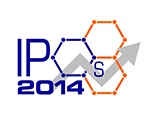 Bellicum Pharmaceuticals ($BLCM), at work in oncology's buzziest field, banked $140 million in an upsized, above-its-range IPO, stoking the fervor around cancer immunotherapies.
Bellicum Pharmaceuticals ($BLCM), at work in oncology's buzziest field, banked $140 million in an upsized, above-its-range IPO, stoking the fervor around cancer immunotherapies.
The Houston biotech moved 7.4 million shares, 17% more than it had initially planned, at $19 apiece, well clear of its previously expected range of $15 to $17. Bellicum has set aside another 1.1 million shares for its underwriters to cover, putting its potential proceeds at up to $160.6 million. The biotech opened trading at around 30% above its pricing on Thursday morning, reaching nearly $26 a share.
The company plans to spend the majority of its new funds on the preclinical development of treatments that fight cancer by harnessing the power of the immune system. Bellicum's pipeline includes BPX-401, which uses targeting mechanisms called chimeric antigen receptors (CARs) to train T cells to bind to the CD19 antigen, expressed by hematological cancer cells. Following that is BPX-601, a CAR-T candidate that targets solid tumors, and BPX-701, an immunotherapy for skin cancer. The biotech plans to submit rolling IND filings for each, starting in the second half of next year and continuing into 2016.
And while Bellicum deserves to be considered on its own merits, the company's glowing reception on Wall Street will be read as a bellwether for Juno Therapeutics, a CAR-T biotech with clinical candidates and near-term IPO plans of its own. Juno, a 2014 Fierce 15 honoree, is looking to raise more than $200 million in its highly anticipated debut. The response to Bellicum, which lags the Seattle biotech in the development process, is likely to affirm investor confidence in the whole CAR-T field.
But Bellicum believes its proprietary approach to immunotherapy makes it a standout in the fast-crowding space. Each of the biotech's CAR-T candidates uses technology derived from BPX-501, a T cell therapy designed to ward off graft-versus-host disease in patients undergoing stem cell transplants. The company's platform comes with a "safety switch" it says can mute unwanted transplant reactions like cytokine release syndrome, a common response to CAR-T therapy that has occasionally proven fatal in early studies, including those conducted by Juno and rival Novartis ($NVS).
The CAR-T cadre also includes Kite Pharma ($KITE), which grossed more than $140 million in a June IPO on the strength of its approach to T cell modification, and oncology heavyweight Celgene ($CELG), which reached out to gene therapy pioneer bluebird bio ($BLUE) to get to work in the field. Latecomers Johnson & Johnson ($JNJ) and Pfizer ($PFE) also shouldered into CAR-T with high-dollar deals earlier this year.
- read the statement